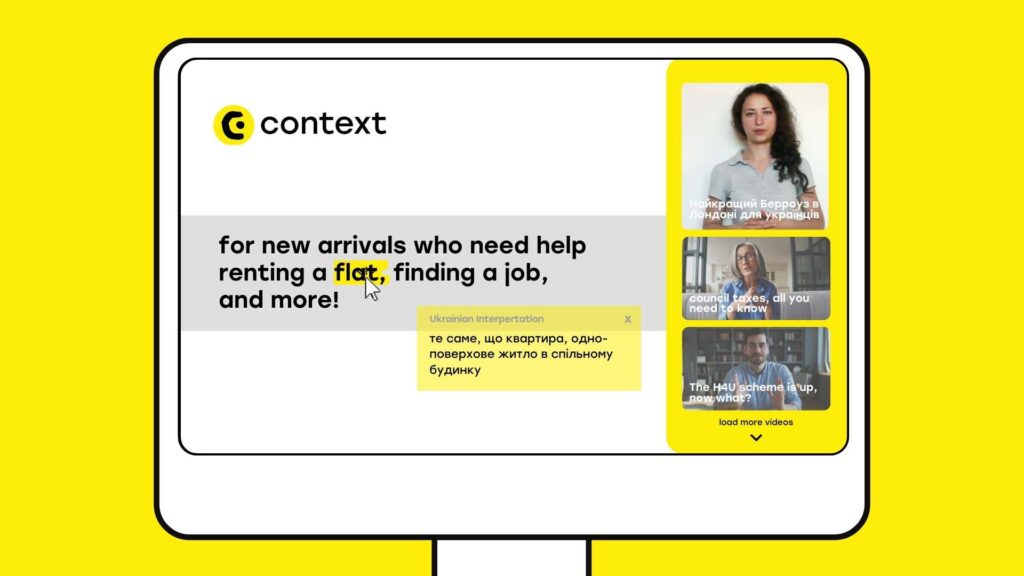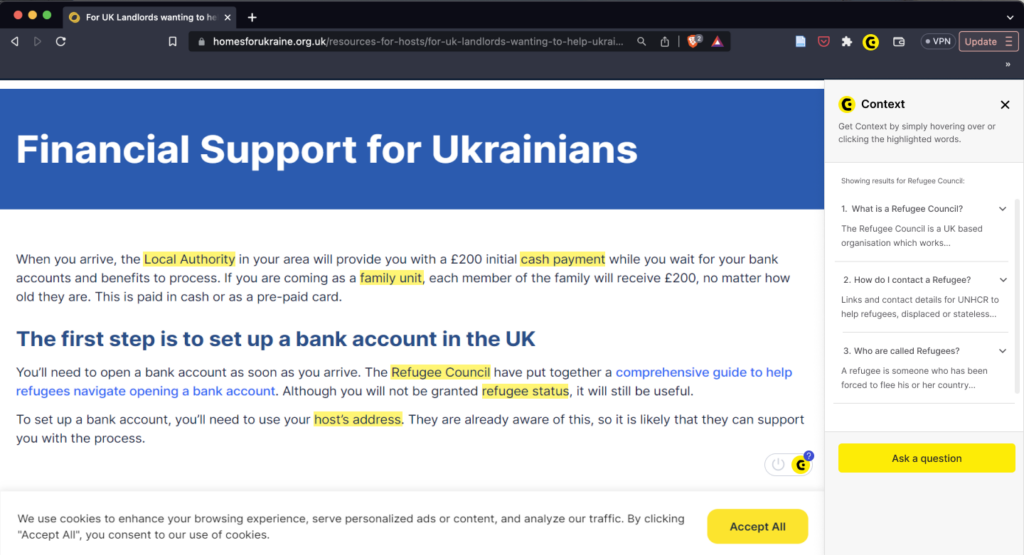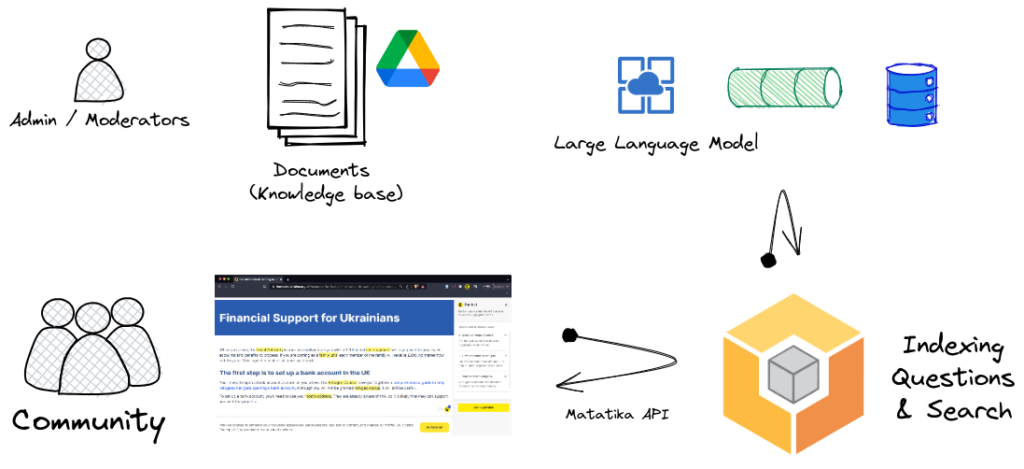How Context helps refugee communities navigate new journeys with Matatika
Context, a Royal College of Art (RCA) service design project, was launched in response to the Ukrainian refugee crisis. The Context team discovered that communities born from a crisis have an urgent need for a human connection to trusted information that is not readily available. The trusted information existed, it just lacked the trusted connective tissue. In this age of instant information, an unfamiliar situation with no online results can feel daunting and isolating. Matatika was able to build a chrome browser plugin on top of its AI powered search and data aggregation technology within days. This fully working prototype, called Context, addressed this information and human connection challenge in a private and secure space.
We celebrate all the other companies that contributed their people and technology:
- The RCA students & tutors – Design discovery and concept creation Learn more
- White Eagle Ukraine Appeal – Access to refugees for research & testing Donate
- Hellon – Design coaching and tech consulting, funded research Learn more…
- S&G Technologies– Technology guidance Learn more…
- Phionike : Design-Tech Studio – UX design Learn more…
The Challenge: Create a human centric interface to trusted information
- A large amount of information that is poorly organised within documents
- An absence of time to organise information that is rapidly changing
- A need to access community led & verified information as openly as possible
- Easy to access information with a human feel / connection
- Simple and easy means to provide verified content at the point of need
- Scalable processing, capable of dealing with large and small quantities of data
For the Context prototype, we needed a solution within days, not weeks. This meant the admin side would need minimal effort to provide the body of knowledge from the existing documents. The user interface would need to be readily accessible to a wide audience and have an easy to consume API for the developers. The final solution would need to deliver the vetted information from existing sources and additional information from lived experience collaboration with the Ukrainian refugee community.
The Solution: Custom Chrome Extension built specifically for Context using a Matatika intelligent workspace
- Chrome Extension coded to the UX design created by Phionike design agency
- Collection of word documents uploaded to GDrive (supplied by Opora)
- Matatika AI powered intelligence and document categorisation
- Matatika API to search documents and ask questions
- Hosted on the Matatika Cloud
The initial UX prototypes identified a major problem for individuals landing in a new environment – put simply, you don’t know what you don’t know. Context uniquely solves this with the ‘context’ words highlighted. The idea being, that members of the community will progressively learn what they don’t know.
In addition to the Chrome Browser plugin technology that was eventually chosen, the working group considered several technologies including native mobile, standalone web apps, progressive web apps, and simple web pages. The chrome side panel and the highlighted words were both key features as they didn’t take over the users browsing experience, but rather the plugin would seamlessly add to their experience and knowledge at their fingertips.
More than just search, the members of the community needed to be able to ask questions. Whilst an Artificial Intelligence generated response from the knowledgebase of documents is extremely powerful, the working team recognised that the trusted human connection could be broken if the responses were entirely AI generated. The final solution proposed an AI assisted question facility, with intelligent search that included only the vetted responses.
Detailed solution overview:
- Documents uploaded to GDrive
- Documents indexed and initial questions intelligently indexed with key words
- Plugin scans and highlights “context” on every page
- New Questions interrogate the knowledgebase and become available for promotion
- Up voting of content leads to even more appropriate “context” as the system learns what’s useful.
“On behalf of the whole team at Matatika, we are honoured to be part of building a solution that has been recognized by multiple service design institutions including the Service Design Network & The Helen Hamlyn Centre for Design” – Aaron Phethean, Founder and CEO, Matatika
Result: A fully working prototype in mind blowing time
- Chrome extension, published and installed by users
- Culturally sensitive information highlighted on page and results served instantly
- Community feedback loop with vetting process
- Tagging of keywords within documents, driving the search engine
- Human elements such as “success confetti”
The prototype enabled the Context team to validate the service design and observe the engagement with real users. Using the feedback that has been captured, discussions are now underway to launch a live service for humans in need all over the world. Learn more…




